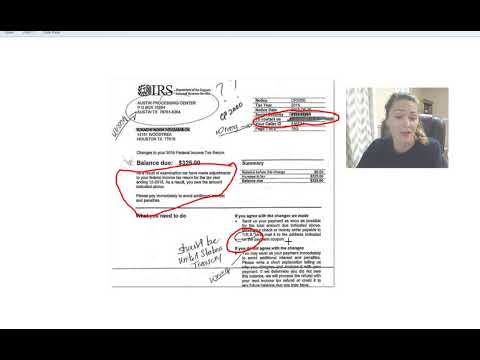Content
- What You Need to Know About IOLTAs & Client Trust Accounts
- About West Town Bank & Trust
- What is the status of the U.S. Supreme Court review of IOLTA?
- Credit Card Processing
- Q: How do I enroll in Business Advantage Online Banking?
- What is an IOLTA Account & 5 Mistakes to Avoid
- Earn Interest to Help Those in Need Cover Legal Fees
Attorneys who establish non-IOLTA trust accounts that generate interest for their clients and receive a 1099 form from the bank may be required to forward the 1099 forms to those clients. Explicitly, IOLTA applies only to funds that are “nominal in amount or held for a short period of time”. So larger amounts of money held for single clients are exempt from the IOLTA program. That means, typically, that client funds eligible for IOLTA involve small amounts of money held for a long time, or significant amounts of money held for a short time.

All banks with at least one IOLTA account are approved for trust account overdraft reporting. Please contact the Foundation if you are unsure as to whether or not your bank qualifies. All the attorney or law firm must do is complete a Notice to Financial Institution form and forward the form to the Foundation. There is no change to the operation of the trust account, and the firm is no longer responsible for regular administrative expenses on the account.
What You Need to Know About IOLTAs & Client Trust Accounts
However, with the right diligence, you can avoid potential problems, financial losses and disciplinary action. Normal bank service charges are paid from the interest earned by the IOLTA accounts. Check printing charges, wire transfer fees, cashier’s checks, cash management services and overdraft costs are not considered normal service charges by IOLTA and are not paid by IOLTA.
When picking a bank or credit union to open a trust account with, take a moment to shop around and make sure they have an understanding of how trust accounts in your jurisdiction must operate. You can always speak with other lawyers or ask at your State Bar for a list of banks that work with law firms. It holds money that was received from the client for the purposes of funding their matter. Mismanagement of an IOLTA account is one of the most common ethical violations committed by lawyers.
About West Town Bank & Trust
When you click on these links you will leave the Bank’s website and will be redirected to another site. The Bank is not responsible for the content of linked third party websites. We are not an agent for these third parties nor do we endorse or guarantee their products. We make no representation or warranty regarding the accuracy of the information contained in the linked sites. We suggest that you always verify the information obtained from linked website before acting upon this information.
- The Indiana Pro Bono Commission, created by the Indiana Supreme Court as a program of the Indiana Bar Foundation, serves to coordinate the efforts of the state’s pro bono programs.
- Please contact the Foundation if you have specific questions about how to correctly determine the required IOLTA interest rate as an eligible institution.
- A basic account designed to meet the everyday banking needs of small businesses with low transaction activity.
- To further prevent any errors, IOLTA debits and credits should be recorded using a double-entry accounting system.
The name on the account, however, is to be that of the lawyer or law firm. The Indiana Bar Foundation or its designees handles interest rate and fee discussions with the bank. The IOLTA rule requires that eligible financial institutions must provide that IOLTA accounts earn the highest interest rate or dividend rate generally available to non-IOLTA customers meeting the same balance and other requirements. The Indiana Bar Foundation notifies the lawyer’s bank of the lawyer’s intent to participate in IOLTA.
What is the status of the U.S. Supreme Court review of IOLTA?
Each account holder should make arrangements with the financial institution regarding these costs. Financial institutions have been notified that the Foundation is a not-for-profit corporation, exempt from federal income tax. As a result, no 1099 forms are required for the IOLTA accounts and no W-9 form mailing is required. The financial institutions have been advised that rulings have been obtained by the Foundation from the appropriate federal regulatory agencies authorizing “NOW” or similar type accounts to be used for IOLTA accounts.
Since 1981, IOLTA has generated over $4 billion in revenue throughout the United States. Attorneys routinely receive and hold funds from clients or third parties for future use. The amount of money held and duration to be held determines whether the client’s money should be held in a client trust account or IOLTA trust account.
After IOLTA, law firms could deposit these funds in interest-bearing checking accounts. The interest is then pooled and forwarded by the fiduciary to the state’s IOLTA board for distribution to legal aid programs and related charities. IOLTA accounts are a useful way to keep client funds separate from a law firm’s operating expenses, all while benefiting the community. https://kelleysbookkeeping.com/ However, as previously mentioned, trying to administer them manually using spreadsheets, or non-specialized accounting software can open you up to risk. This gets even more complex as more law firms modernize by offering digital payments for their clients, since even small payment processing fees have to be handled correctly to stay IOLTA compliant.

The current low-interest-rate environment will impact IOLTA programs. It can be even more overwhelming if you’ve experienced a major life change or started a business, and as a result – don’t know what the tax implications will be. This comparison chart makes it easy to compare all of our checking options. A prestigious account designed for established businesses with high checking activity. Florida was the first state to establish the first IOLTA programs in the early 1980s and shortly thereafter, the rest of the states followed suit.
An expert bookkeeper ensures your IOLTA is always recorded properly on the books. They can also flag any potential misuse of trust funds so that they Purpose Of An Iolta Checking Account For A Lawyer can be fixed before you face any penalties. Your books will be ready for tax season and you can work confidently knowing your IOLTA is handled right.
- ABA Model Rule of Professional Conduct 1.15 says that a lawyer must keep client property in the lawyer’s possession separate from the lawyer’s own property.
- They might take trust account money before it’s earned because they’re having cash flow problems.
- Not all banks must offer IOLTA accounts, however, there are more than 5,500 banks that offer them.
- Legal-specific credit card merchants are prepared to deposit fees into one account (the trust account) and withdraw them from another (the operating account).
ABA Model Rule of Professional Conduct 1.15 says that a lawyer must keep client property in the lawyer’s possession separate from the lawyer’s own property. Most states, if not all, have adopted some variation of this rule against commingling funds. That means you’ll need to deposit client funds directly into a client trust account. However, the strict regulations around trust accounts mean they’re not set up to handle generic credit card merchants. The credit card service fees can’t come out of the trust account because they’re the law firm’s fees to pay, not the client’s.
Legal accounting is notoriously tricky and, truthfully, not enough time is spent training attorneys on the various intricacies that go into correctly managing their finances. But in the end, mishandling an IOLTA trust account, even as the result of an honest mistake, can irrevocably damage your reputation and erode client trust. In short, you should never make assumptions or take chances when it comes to handling your client’s funds. IOLTA accounts have been used by attorneys in the United States since the early 1980s, when Florida became the first state in the country to allow its attorneys to put client funds in an IOLTA account. The interest earned on the IOLTA account is collected and distributed to a variety of legal programs that aid the underprivileged. In some cases IOLTA money is distributed to law school legal clinics, legal education programs and other legal charities.
